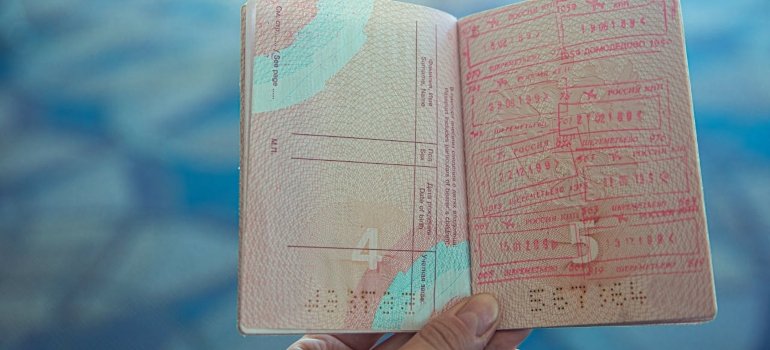Guidelines for Obtaining a Visa

Get a Free Moving Quote Now!
Start Your International Moving Journey





International moving takes a degree of foresight that exceeds what domestic moves typically require. One of the requirements for moving abroad is obtaining a visa. A visa is a document or stamp that a country grants a traveler that states when, why, and for how long someone can travel to and stay in a country. There are many types of visas that vary depending on the duration of your stay and your intentions for being there. If you plan on moving, and not just vacationing, you’ll likely need a visa.
Here are some things to keep in mind when trying to obtain a visa for an international move:
Not all visas are created equal
Each country has its own set of rules and restrictions for giving out visas. You will always need at least a few levels of identification, like your birth certificate or a photo ID. Remember that visas are a way for countries to determine what it is you plan on doing on their soil. Any information that you can bring to help show why you are moving to a country will likely help you in obtaining a visa.
Have a passport
Visas are sometimes nothing more than stamps on passports. Visas can be their own documents, but you will still always need a passport before you can get a visa. Some countries require that you have had a passport for a certain period of time (up to six months) before they will grant a visa.

Start at the consulate
Before you move internationally, you should visit your destination’s consulate. That is where you will get the specific requirements for the type of visa that you are looking for. Most countries have online embassies/consulates that should allow you to apply for a visa online.
Plan ahead
Some visas are granted upon arrival in a country. Other visas may take months to be granted. This is why visiting the specific country’s consulate/ website is so important. There really are very few hard and fast rules for visas. You must understand the specific country’s policies in order to know how long it will take to get a visa.
The Schengen Countries
Most members of the European Union are part of the Schengen Agreement, which states that these countries will allow citizens from other Schengen countries entry into their country for 90 days at a time without requiring a visa. If you plan on having a short-term international move, you may not need a visa if you are visiting one of these countries. Keep in mind that non-European countries like China will require a visa even if you plan on staying for just one day.
They cost a little money
Nothing is free, and visas are not an exception to that rule. Like everything else regarding visas, their price can vary greatly depending on the country you plan to move to. The price is a typical arbitrary documentation fee. They generally range from $50 to $200.

Mail or deliver your application
Once you have found and filled out the necessary visa application form, including any additional information that the country asks for, you have to get it to an embassy or consulate. Most countries will accept electronic or physical mailing of applications. If physically mailed, they may expect you to send a self-addressed and stamped envelope that they will use to mail your visa to you. Some countries will not accept applications via the internet or mail. If that’s the case, you will have to visit the country’s consulate in person in order to receive a visa.
You could hire someone to take care of the visa process
If your time is worth more than your money (roughly $300), you can hire an agency that will procure and fill out the necessary visa application forms as quickly as possible. In the best circumstances, these agencies can get you your visa within one day.
Visas are a key part of temporary international moves. Depending on the destination country, there may be a variety of policies and prices surrounding visas. That’s OK because if every country were the same, then you wouldn’t be moving internationally.
